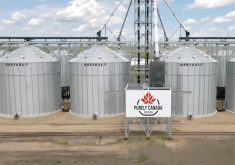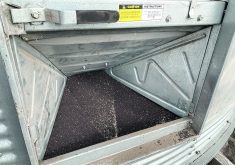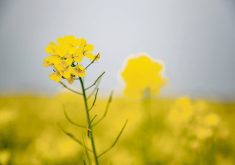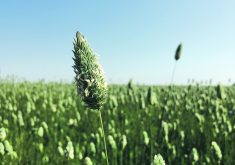REGINA — Saskatchewan’s pulse and special crops processing landscape is changing again, as Harvest Grain Ltd. announced last week it had acquired two existing facilities.
The newly incorporated company already owned Bornhorst Seeds Ltd. at St. Gregor.
On Nov. 12 a court approved Harvest Grain’s purchase of the former Global Food and Ingredients facility at Zealandia after GFI entered receivership in the spring. That purchase is to close Nov. 30.
Read Also

New coal mine proposal met with old concerns
A smaller version of the previously rejected Grassy Mountain coal mine project in Crowsnest Pass is back on the table, and the Livingstone Landowners Group continues to voice concerns about the environmental risks.
It will also have full ownership of Harvest Milling at Fillmore, effective Dec. 31, after buying out the 50 per cent share owned by KF Homestead Properties Inc., one of Lionel Kambeitz’s personal holdings.
Kambeitz is the CEO of Above Foods, which owns Purely Canada Foods. The Canadian Grain Commission revoked Purely Canada’s licence in September and Above Foods’ share price dropped so low it is no longer on the Nasdaq stock exchange. The company has six months to regain compliance.
David Nobbs is one of three shareholders in Harvest Grain and a long-time special crop trader.
He said Bornhorst Seeds will eventually take on the new name but is currently handling all grain transactions as a licensed and bonded company.
Nobbs, who had resigned from Purely Canada, said he hopes the upheaval is over for special crop companies after a better crop this year.
“Hopefully we’ve seen the last of the turmoil in the special crop business,” he said. “The trade has been fighting over smaller volumes for the last few years and hopefully that’s behind us for a while.”
Numerous companies have recently found themselves in trouble or changed hands due to low margins.
The company will focus on canary seed and pulses.
“We’ll have our strengths in the canary seed, the maple pea market, Eston lentils, French greens, large green lentils and green peas,” Nobbs said. “We’re focusing more on kind of the niches within the niche of the special crop business.”
He has traded canary seed for 24 years and is chair of the provincial development commission.
Canada exports about 150,000 tonnes of canary seed annually, solely for birds. A small amount of the commission’s budget is used for the human food market but Nobbs said that’s a difficult endeavour.
Rebranding the seed as alpiste for North American consumers has had limited success so far. An old practice in Spain to make leche de alpiste, or a milky broth for drinking, does account for some human consumption. But the Spanish practice of keeping a bird in the home still drives the market.
The market focus continues to be Latin America, where Mexico is the largest customer of canary seed in the world.
Nobbs said Hungary and Argentina are producing canary seed but Saskatchewan supplies the bulk of global trade.
“Some canary seed came up from the southern U.S. in the back of a Lincoln 40 years ago,” he said. “Production started in Indian Head and Eatonia and we’ve taken over that market.”
Maple peas are used as food for racing pigeons, although they are also sprouted and used in specialized food applications, he added.
His partners in Harvest Grain are Terry Arnold, a farmer and special crop facility manager, and trader Rajesh Jain.
Nobbs said they haven’t determined who will act as CEO or in other roles.
“We’re kind of a team of people that have worked together a long time and we all know what we need to do,” he said. “Just go do it.”
The focus on low-cost niche areas is intentional. Nobbs said over the last 10 years a lot of companies have promoted massive capacities.
“They take the number of rail cars … we have 96 rail car spots so technically we have in the neighbourhood of half a million tonnes,” he explained. “We won’t even target a third of that. As soon as you start targeting these massive numbers, you allow your costs to go up.”
The purchase prices of the Fillmore and Zealandia plants were not disclosed.


















